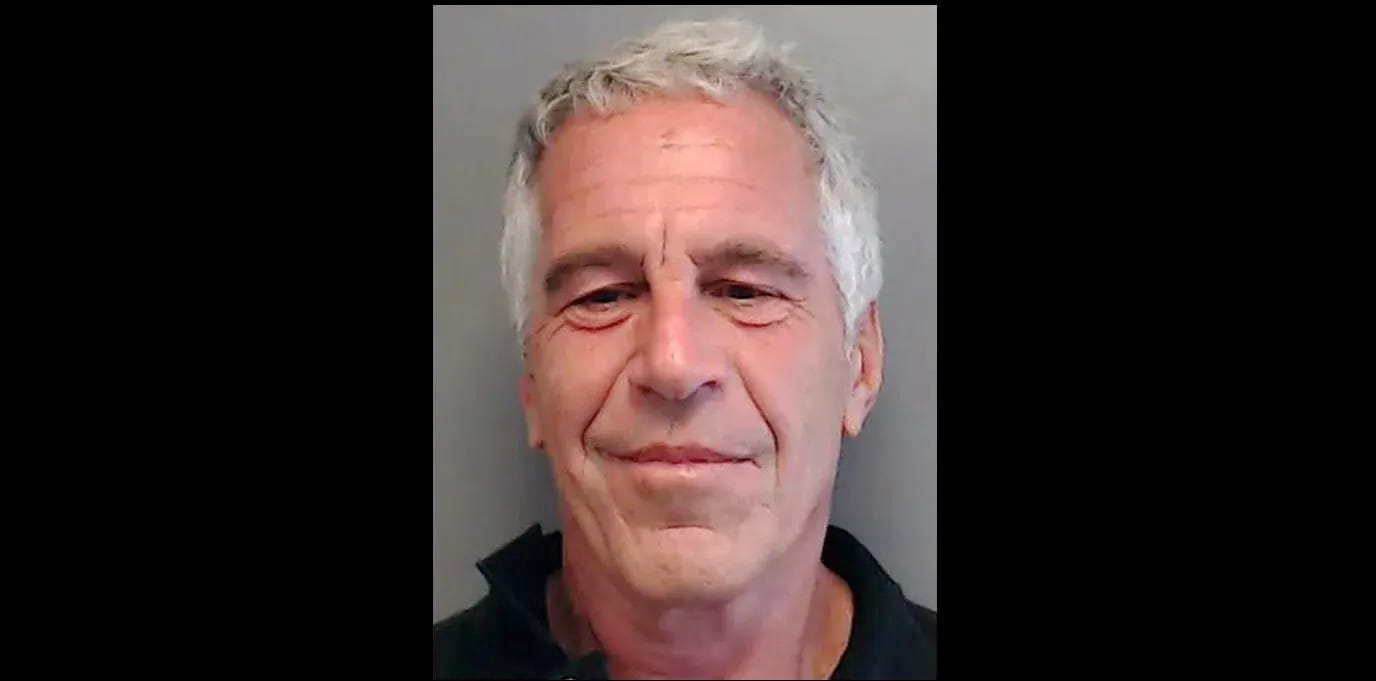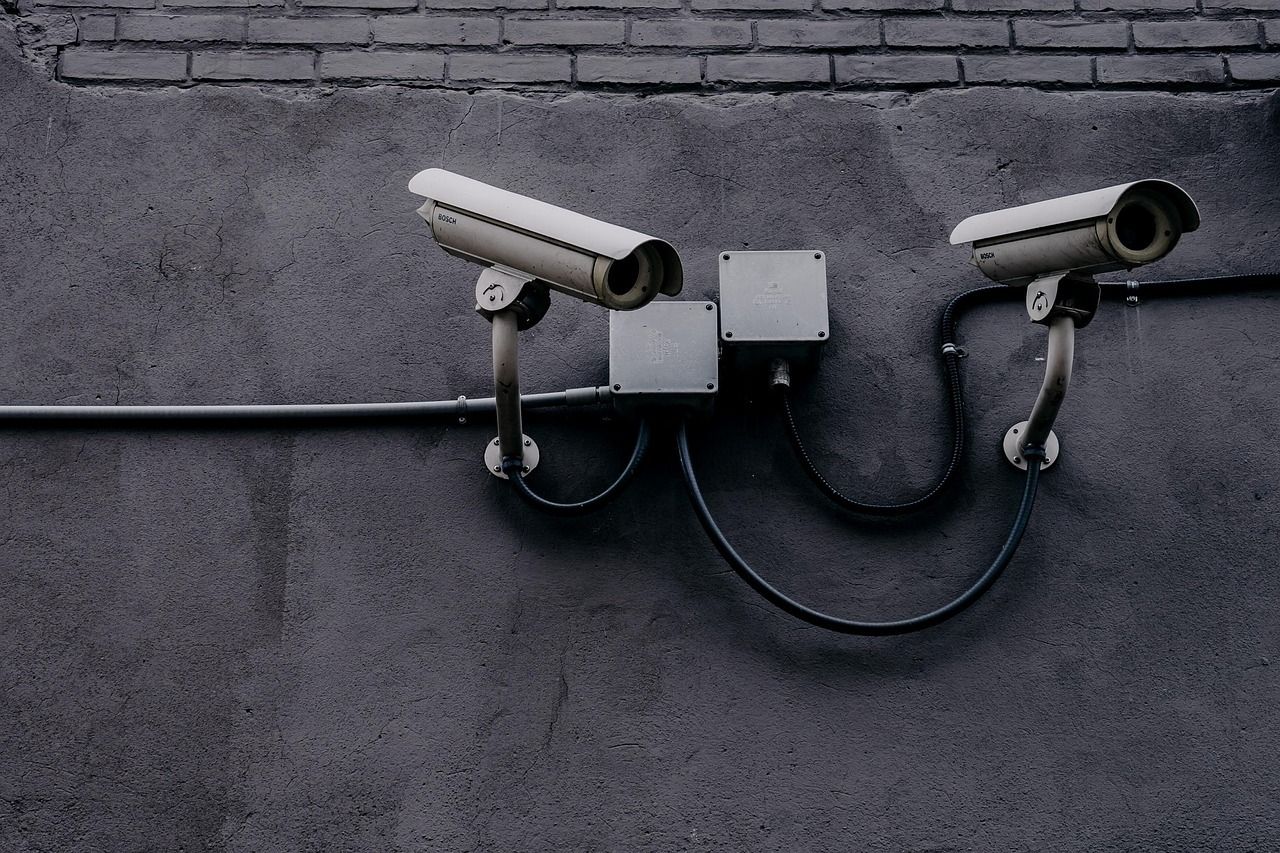
Welcome back!
Here’s your must-read news this morning:
I’ve got all the details for you, so let’s dive in.
— Josh
MARKETS
💰 NYT: How JPMorgan Ignored Warnings to Bankroll Epstein’s Criminal Empire

(Credit: State of Florida/ Public Domain via Wikimedia Commons.)
The Scoop: JPMorgan Chase enabled Jeffrey Epstein’s criminal empire for over a decade by prioritizing his lucrative accounts and connections over internal warnings and his 2008 sex crime conviction, facilitating his illicit activities through unchecked financial services, a New York Times investigation details.
The Details:
JPMorgan maintained Epstein’s accounts holding over $200 million, generating millions in fees and benefiting from his role in deals like the $1.3 billion Highbridge acquisition, which earned him a $15 million fee, and introductions to clients like Google’s Sergey Brin.
The bank processed over $1 billion in Epstein’s transactions, including wires to Russia and Eastern Europe tied to his sex-trafficking network, and opened 134 accounts for him, his companies, and associates, including for his trafficking-linked Little Saint James island and MC2 modeling agency.
Anti-money-laundering specialists flagged Epstein’s large cash withdrawals—exceeding $1.7 million in 2004–2005—and accounts opened for young women without proper verification, clear trafficking red flags, yet the bank failed to act decisively.
Senior executive Jes Staley, Epstein’s chief defender, shared confidential bank information and overrode compliance concerns, convincing general counsel Stephen Cutler in 2011 to retain Epstein after meetings where he claimed to have reformed.
Despite Epstein’s 2008 guilty plea for soliciting sex from a minor, JPMorgan extended credit lines, including $50 million in 2010, and wired funds abroad during his jail term, enabling his trafficking operations with minimal oversight.
The bank’s executives, including Mary Erdoes, ignored internal calls to “exit” Epstein, with emails joking about his “preferences” even as lawsuits and indictments mounted.
Only a 2013 regulatory anti-money-laundering order forced JPMorgan to sever ties, with Erdoes citing Epstein’s “repetitive” cash activity, after which he shifted $176 million to Deutsche Bank while maintaining contact with JPMorgan bankers.
What’s Next: JPMorgan’s settlements of $365 million with Epstein’s victims and the U.S. Virgin Islands, without regulatory penalties or executive consequences, highlight the need for stricter banking oversight to prevent institutions from enabling high-risk clients for profit, with lasting implications for industry accountability.
Markets Roundup
🏦 Economy & Policy
⭐ Editor’s Pick: Treasury Secretary Scott Bessent allegedly threatened to punch FHFA Director Bill Pulte over claims that Pulte criticized him to Trump. (POL)
U.S. consumer credit surged to $16.01 billion, demonstrating a robust increase in consumer spending and confidence. (INV)
The U.S. and South Korea remain deadlocked over the terms of a $350 billion investment fund tied to a trade deal. (FP)
The Senate Banking Committee is set to vote Wednesday on Stephen Miran’s nomination as a Federal Reserve governor. (BBG)
🏢 Industry
⭐ Editor’s Pick: Lachlan Murdoch, Rupert Murdoch’s son, secured control of the family’s media empire, including Fox News, through a new trust agreement. (CNBC)
SpaceX will pay about $17 billion and cover $2 billion in interest payments to acquire EchoStar's AWS-4 and H-block spectrum licenses, enabling Starlink to offer direct-to-cell services. (BB)
CBS News appointed Kenneth Weinstein, former CEO of the Hudson Institute, as its ombudsman to review bias and editorial complaints. (NYP)
Bountiful Financial launched the S&P 500 Christian Values Screened Index, a new fund tailored for evangelical Christian investors. (FBN)
💵 Energy & Commodities
⭐ Editor’s Pick: The Kremlin declared that Western sanctions will never compel Russia to alter its stance on the Ukraine war. (RTS)
U.S. and Italy agreed to strengthen energy ties, focusing on boosting LNG supplies. (RBCU)
EU officials are exploring sanctions on China and other nations for buying Russian oil. (FT)
U.S. Strategic Metals signed a $500 million deal with Pakistan to develop a poly-metallic refinery and export critical minerals. (YF)
🌕 Crypto
⭐ Editor’s Pick: Ledger's CTO Charles Guillemet warned users to halt on-chain transactions on Monday due to a significant cyber attack targeting the JavaScript ecosystem. (TB)
Eightco’s stock surged over 5,600% after announcing a $250 million private placement to acquire Worldcoin tokens and appointing Wall Street analyst Dan Ives as chairman. (BBG)
Kazakhstan’s president unveiled plans for a “CryptoCity” and directed the government to establish a national crypto reserve. (CT)
Tom Lee from Fundstrat Global Advisors forecasted Bitcoin could "easily" reach $200,000 by the end of 2025. (CNBC)
SPONSOR
7 Ways to Take Control of Your Legacy
Planning your estate might not sound like the most exciting thing on your to-do list, but trust us, it’s worth it. And with The Investor’s Guide to Estate Planning, preparing isn’t as daunting as it may seem.
Inside, you’ll find {straightforward advice} on tackling key documents to clearly spell out your wishes.
Plus, there’s help for having those all-important family conversations about your financial legacy to make sure everyone’s on the same page (and avoid negative future surprises).
Why leave things to chance when you can take control? Explore ways to start, review or refine your estate plan today with The Investor’s Guide to Estate Planning.
TECH
💊 Harvard's AI Breakthrough May Accelerate Cures for Parkinson’s and Alzheimer’s

(Credit: Chokniti Khongchum/Pexels)
The Scoop: Harvard Medical School researchers have developed PDGrapher, an AI model that could revolutionize drug discovery by identifying treatments to reverse disease states in cells, offering a faster, more precise approach to tackling complex conditions like cancer and neurodegenerative disorders, the Harvard Gazette reports.
The Details:
Unlike traditional methods that test single protein targets, PDGrapher uses a graph neural network to map relationships between genes, proteins, and pathways, predicting optimal single or combined therapies to restore healthy cell function.
Trained on datasets of diseased and treated cells, the model accurately identified known drug targets like KDR for lung cancer and TOP2A for metastases, while outperforming other AI tools by ranking correct targets up to 35% higher and delivering results 25 times faster.
PDGrapher’s ability to pinpoint multiple disease drivers could transform treatment design for cancers and brain diseases like Parkinson’s and Alzheimer’s.
What’s Next: As researchers apply PDGrapher to complex diseases and collaborate on personalized treatments for conditions like Dystonia-Parkinsonism, the model’s insights could accelerate drug development, uncover new biological mechanisms, and pave the way for tailored therapies.
Tech Roundup
🧠 AI
⭐ Editor’s Pick: AI and Crypto Czar David Sacks has emerged as a key business influencer in Washington by leveraging deep industry expertise and strategic relationships with White House insiders to advance tech-friendly policies. (SEM)
OpenAI executives are concerned that political scrutiny in California could derail their plan to transition to a for-profit company, prompting discussions of relocating. (WSJ)
Baidu unveiled an upgraded X1.1 reasoning model, claiming superior performance over DeepSeek’s R1 and matching OpenAI’s GPT-5 and Google’s Gemini 2.5 Pro. (SCMP)
Microsoft inked a potential $20 billion, five-year deal with Nebius to supply computing power for its AI operations. (FT)
🤖 Hardware & Robotics
⭐ Editor’s Pick: Chinese doctors successfully performed the world’s first 5G remote robotic urological surgery at 14,800 feet in Tibet, connecting hospitals 2,500 miles apart. (EUN)
Scientists created a new way to move tiny robots using collapsing bubbles, which could help deliver medicine or perform small surgeries inside the body. (TEX)
WSU researchers developed an AI-guided robot that uses soft grippers to delicately pick strawberries. (NT)
Robots at Japan’s Robot Factory by Niklas Roy transform into artists, autonomously creating intricate paintings and sculptures. (YD)
🚀 Defense & Space
⭐ Editor’s Pick: DARPA is developing robotic combat surgeons to autonomously perform life-saving procedures in battlefield conditions. (DB)
AI-enhanced and stealth-equipped vehicles are transforming combat by enabling real-time decision-making, networked coordination, and undetectable operations across land, sea, and air. (DSTN)
The U.S. Air Force is exploring atomic-clock technology to synchronize drone swarms with picosecond-level accuracy, enabling coordinated operation even when GPS is jammed or spoofed. (IE)
The U.S. Air Force awarded a contract to Applied Research Associates to develop a lighter, more precise bunker-buster bomb. (DN)
💰 Venture Capital & Deals
⭐ Editor’s Pick: Mistral AI raised €1.7 billion ($2 billion) in a Series C at an €11.7 billion ($13.8 billion) valuation, with ASML leading the round by investing €1.3 billion ($1.5 billion) to become its largest shareholder. (CNBC)
Cognition, the startup behind AI coding agent Devin, raised $400 million led by Founders Fund, boosting its valuation to $10.2 billion. (BBG)
Motion, an AI agent platform for SMBs, raised $38 million in a Series C led by Scale Venture Partners, bringing total funding to $75 million. (TC)
TruckSmarter raised $16 million, led by Socium Ventures, and unveiled Dispatch, an AI-powered tool that helps carriers and brokers book loads in minutes instead of hours. (TS)
FREEDOM
🚨 Bombshell Report: U.S. Tech Firms Enabled China's Digital Police State

(Credit: WebTechExperts/Pixabay)
The Scoop: An Associated Press investigation reveals that American tech giants, including IBM, Dell, and Cisco, played a pivotal role in building China’s vast surveillance state, selling billions in technology that enabled human rights abuses despite U.S. warnings about its use to suppress dissent and minorities.
The Details:
U.S. companies supplied critical technologies for China’s “Golden Shield” and other systems, including IBM’s i2 software for predictive policing, Dell’s AI-powered laptops with “all-race recognition,” and Motorola’s encrypted radios, used to track dissidents, religious groups, and Uyghurs in Xinjiang.
The investigation, based on leaked documents, emails, and interviews with over 100 experts and officials, shows American firms dominated China’s surveillance market, with products like Oracle’s software, NVIDIA’s AI chips, and Thermo Fisher’s DNA kits tailored for Chinese police.
Despite claims of compliance with U.S. export controls, companies continued sales even after 2019 sanctions, with maintenance contracts for IBM, Dell, and others still powering China’s surveillance systems, raising concerns about ongoing complicity.
What’s Next: As China exports its U.S.-built surveillance model to countries like Iran and Russia, and with global surveillance tech use rising, the findings intensify scrutiny on American firms’ ethical responsibilities and the need for stricter export controls to prevent further human rights violations.
Freedom Roundup
🏛️ Policy, Free Speech & Woke Overreach
⭐ Editor’s Pick: A new Banksy mural appeared overnight on the Royal Courts of Justice in London showing a judge beating a protester with a gavel, before authorities quickly covered and began removing it. (GN)
Trump praised the cancellation of West Point’s award ceremony honoring Tom Hanks, denouncing him as “destructive” and “woke.” (WT)
Two Alabama universities were filmed in undercover videos admitting that they sought “loopholes” to continue DEI efforts. (CF)
Supreme Court Chief Justice John Roberts has temporarily cleared the way for Trump to remove FTC Commissioner Rebecca Slaughter. (TH)
That's a wrap! You're officially caught up on all things tech, markets and freedom. Subscribe to CAPITAL below.
Feel free to reply to this email with any questions and/or comments.
DISCLAIMER: The CAPITAL newsletter is for informational purposes only and does not constitute financial, investment, or professional advice. Readers should conduct their own research and consult a qualified financial advisor before making investment decisions. The CAPITAL newsletter and its owner and operator, Josh Caplan, are not liable for any loss or damage resulting from reliance on this information. The CAPITAL newsletter is solely owned and independently operated by Josh Caplan, separate from any employer affiliations.



